This ’10 insights’ #May12BlogBomb post is a perspective from the awareness of having ME, looking outwards at the world through the lens of ME. I believe that people with ME (pwme) have useful observations to contribute to society, perhaps a little akin to Old Testament minor prophets. This can be compared to the voices of other marginalised people groups, such as the queer community, the Equal Rights Movement and feminism. Each marginalised group gains different insights on life, related to their specific barriers to inclusion.
Table of Contents
2) Anything Can Happen at Any Time
4) A Rose by a Different Name Does Smell Sweeter
5) The Authority on Your Body is You
6) Access to Health Requires Self-Reliance
7) Very Little Knowledge is Truly Known
8) Learn your Limits and Take a Step Back
9) Money Enables Quality of Life
10) Appearance is Deceptive if You Don’t Look
Conclusion: how you can make a difference
Footnotes: Biographical details on the people quoted
Background Information
Myalgic encephalomyelitis (ME) is a serious condition which the World Health Organisation categorises as neurological (ICD G93.3). It involves widespread inflammation and multisystemic neuropathology. ME is a fluctuating condition for most people, but around a quarter of patients are housebound or bedbound, out of sight from society. It has been chronically underfunded in relation to other conditions of similar severity, but research is advancing including evidence of changes in miRNA expression in four types of white blood cells which could be used as a biomarker and a B cells related cancer drug (rituximab) which has so far benefitted 2/3 of ME patients studied.
ME Awareness Day on May 12th aims to make the millions of unseen people with ME visible, as well as raising money for further research.
I have lived with fluctuating ME for 18 years and also experience the related frustrations of Postural Tachycardia Syndrome and Fibromyalgia. I hope to avoid the dangers of Inspiration Porn by writing this: I am not brave or inspiring, this is just the situation I’m in. ME can happen to anyone. With my experience you would have learnt similar lessons. This piece is my personal opinion but I think most people with ME (pwme) would recognise at least some of these observations.
Quotes used in this post (with and without images) are from authors, thinkers and musicians who are either known to have had ME, or have a posthumous, tentative diagnosis (see footnotes)
1) Dignity is Vital

People with ME often feel like our voice isn’t heard. This may be fairly literal for those who are housebound and living alone. There are young adults experiencing the degree of loneliness associated with isolated octogenarians. Social contact can be experienced as sensory overstimulation which is intolerable, so this isolation can only be remedied by a remedy for the illness itself.
“I disappeared entirely and no one knew why. Among the people who hadn’t a clue was me.” ~ Howard Bloom
On a more profound level, we feel that the establishment has often silenced our perception of what is happening in our bodies. There is a Human Rights angle to this silencing of patients. Many people with chronic illness will have experienced something similar to this, but I believe this has occurred in an especially damaging way for people with ME. When pwme do speak out online (the most effective way for us to state our opinions) even some researchers in the area call us ‘vexatious’ and young academics are warned off ME research.
At the end of March this year, a Freedom of Information ruling found against a ME patient request for data. The reasoning seemed to be that they had communicated with others about the study online and expected that the raw data would reveal problems. To me there are two main failings with this approach to Justice: everyone is connected online now, especially pwme as we often don’t have much offline contact with other people; and obviously a patient with ME is only going to make a FOI request if they think something is wrong with the data, no-one this ill would use up that much energy otherwise. Would it now be futile for me to attempt a FOI request?! Where is the freedom to Thought, Free Speech and Peaceful Protest in this? At the very least the law in this area needs updating.
There are anachronistic, and (as most pwme are women) potentially sexist, tendencies to dismiss physical symptoms. This is not at all dissimilar to the label of hysteria applied to Victorian women. At an argumental level this is unfalsifiable, and as such, a frustrating thief of the dignity of patients. The obvious way to settle the discrepancy is medical biomarkers. Despite an increasingly long list of biomarkers and biomedical dysfunction at a group level in research settings, it is usually considered cost-prohibitive to do the relevant tests on an individual patient basis, so specific issues and co-morbid conditions are left undiagnosed and untreated for years.
What this type of issue in the ME community has taught me is that treating patients with respect and dignity should be top and centre when it comes to promoting wellbeing. This isn’t a groundbreaking idea, but perhaps surprising when it relates to a patient group that is passionately campaigning for biomedical research.
By reading and sharing this post you are acknowledging and valuing the perspective of people with ME (pwme). It is treating us with a dignity that is often lacking. Thank you.
Without dignity, identity is erased. In its absence, men are defined not by themselves, but by their captors and the circumstances in which they are forced to live.”
Laura Hillenbrand
2) Anything Can Happen at Any Time
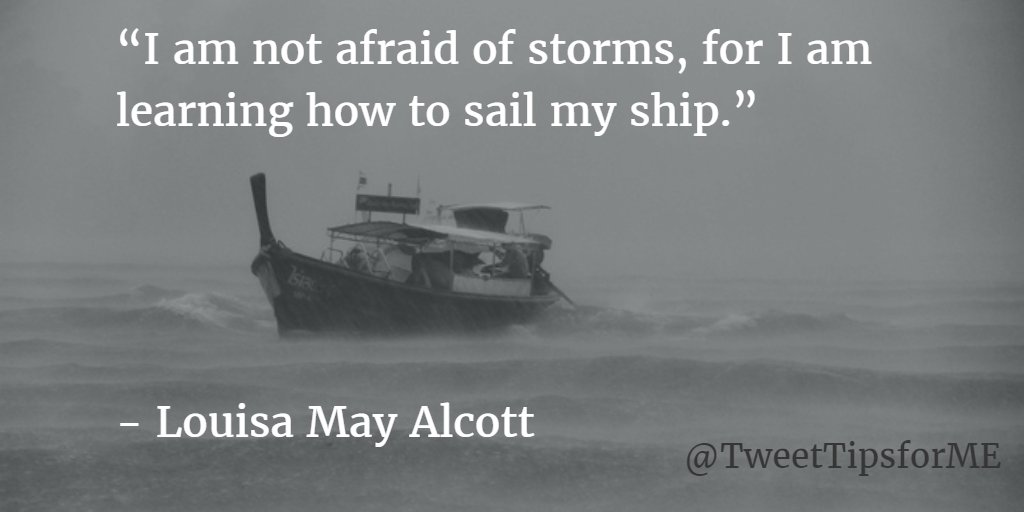
Most people live expecting the Future Present – life will continue in much the same way, or in the way you plan. ME teaches you that anything can happen at any time, good or bad.
“cause although it seemed to be the end of the world to me –
it wasn’t.There was a lot more world : cause roads that look set to take you in one direction will sometimes twist back on themselves without ever seeming anything other than straight, … many things get forgiven in the course of a life : nothing is finished or unchangeable except death and even death will bend a little if what you tell of it is told right.”
Ali Smith
The long term prognosis is unknown, some people continue at a similar level of disability, some people make a functional recovery, some gradually decline, some people oscillate in and out of remission and recovery and a few die ME related deaths. On a day to day basis there is an equivalent level of uncertainty too, not knowing if a day will be relatively good or bad. It is very difficult to make any plans. There are conditions which are more deadly, but there are few conditions which are as uncertain as life with ME. Dealing with this level of uncertainty requires deep wells of resilience.
“When your seven-year plan happens to someone else
And the people in your life you would happily shelf
When day falls night, you are truly on your own?
You’re in this place ’cause you thoughtYou’d be someone else”
Stuart Murdoch, Belle and Sebastian“I don’t really think a lot about the future. I think that’s a really important part of staying sane. I think that giving up the future is necessary, and it’s something that happens, gradually, without even thinking about it. It’s not about abandoning hope: I believe I can get better. I just have no idea when or how or what better will look like. So I focus on what I can do, right now.” Jen Brea
There is a need to draw on wisdom traditions. Toni Bernhard writes books incorporating her experiences of ME and Buddhism. She writes a lot about the Buddhist understanding of Impermanence.
“”Here it is again, life and the weather. Just wind, man, blowing all over the place.” … I remind myself that the wind that’s blowing the bitterest cold at me may be setting the stage for something joyful to follow” Toni Bernhard
I have found Modern Stoicism to be a practical wisdom to apply to ME adversity. The emphasis in Stoicism is on your personal emotional/mental response to situations, not what you are able to do. The success of your day can be judged by how well you responded to adversity, rather than by how much you got done. In an era when people’s worklife is governed by increasing targets and reducing resources, I think this is useful for everyone to contemplate (see my Stoicism posts, such as this one with audio Stoic meditations).
top
3) Listen to Canaries
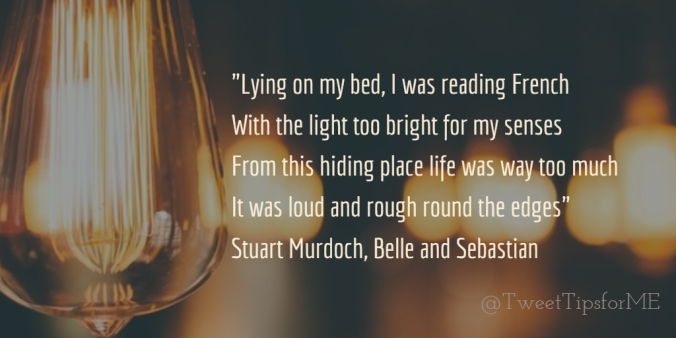
People with ME often experience sensory and chemical sensitivity that can be baffling to other people. We seem to be more than averagely alert to the environmental dangers of toxins and allergens. While this is a dysfunction that causes debilitating symptoms, it can also be useful as a warning to people whose bodies are generally able to process these external stressors more easily. A high profile ME documentary, to be released in 2017, is called Canary in a Coalmine after this aspect of the condition (miners used to send canaries down mines as they were more sensitive to the effects of carbon monoxide).

It can be tempting to dismiss stories of Multiple Chemical Sensitivity, but I suggest that the general population would do well to be cautious about the substances that cause ME flares such as fresh paint, new carpet, perfume, makeup, food additives.
“And it was always the stories that needed the telling that gave us the rope we could cross any river with. They balanced us high above any crevasse. They made us be natural acrobats. They made us brave. They met us well. They changed us. It was in their nature to.”
Ali Smith
4) A Rose by a Different Name Does Smell Sweeter
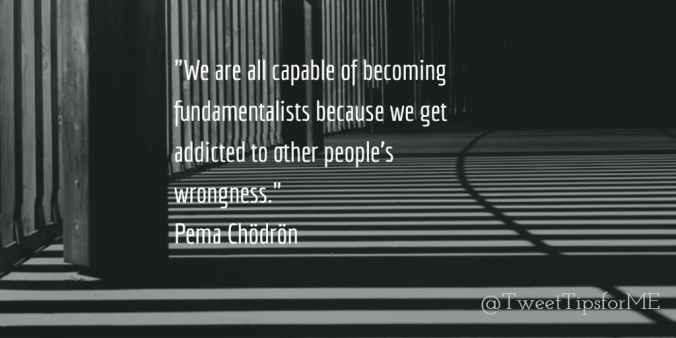
Whatever it is that is biologically wrong in my body has been called various things. To some extent this has caused unnecessary tension between patients. Who has been given the correct label? Which labels are always wrong? Which co-morbidities are actually different names for the same thing? In terms of resolving this long term, I think the only answer is to work backwards from biomarkers, with careful subgrouping in research, as current similar-but-different diagnostic labels and case definitions seem irreconcilably muddled.
However, in the meantime, I have gained insight into the importance of specific names. For example, Chronic Fatigue Syndrome tends to be the label used by researchers and patients often comment that too much emphasis is placed on fatigue in research. There are many symptoms in ME/CFS and fatigue is perhaps the most vague, overlapping with too many other illnesses. If researchers had kept to the name Myalgic encephalomyelitis perhaps they’d have placed too much emphasis on muscle pain instead (myalgic)?
“Fatigue is what we experience, but it is what a match is to an atomic bomb.”~ Laura Hillenbrand
In a previous tongue-in-cheek post ‘Is CFS Real?‘ I discuss in more detail ideas around:
How we name this thing will at least effect attitudes, and in turn the nature of research, and in turn the nature of treatment, and in turn whether or not we are still ill (in the sense of if we are considered ill and if we feel well or not). CFS could be cured out of existence as the indirect consequence of what it is renamed, and then no one would really have it…
read more on the un/reality of CFS
From this specific insight I have gained a more general awareness of the importance of language, and also the shifting meaning of words. Far from being the pointless Political Correctness Police, how people wish to refer to themselves/others does matter and does change reality in a domino like effect.
top
5) The Authority on Your Body is You
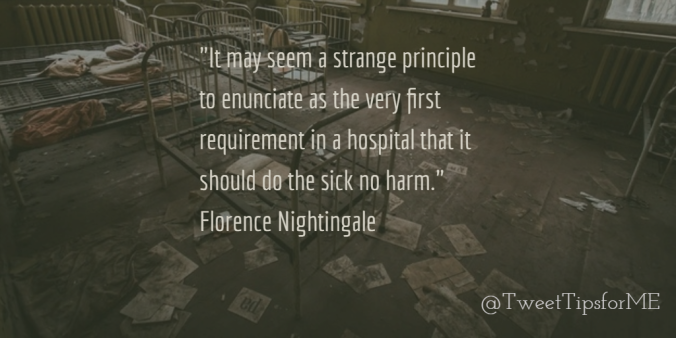
Most people believe that if they get ill they will go to a doctor, the doctor will diagnose them or refer them to someone who knows more, and then they will get treatment. For nearly everyone with ME this faith is shattered. Medical knowledge is nowhere near as advanced as we thought it was.
“the vast variety of symptoms that afflict mankind puzzle even the most erudite doctor. Over 50 % of the patients who troop into medical offices are sent home with the assurance that there’s nothing really wrong. Even well understood illnesses are far less controllable by medical techniques than physicians are willing to admit. However,the medical profession deals with this by hiding its ignorance… What doctors are selling then, is not necessarily the ability to cure us, but the illusion of control. While medical practitioners make their living from the human hunger for control, they themselves are often frequently victims of that hunger… Research suggests that people tend to block out what they can’t control and focus on what they can. The medical profession’s eyes are frequently blinded by this phenomenon.” Harold Bloom
Doctors want to be able to help people and it can be difficult to accept that you don’t understand the aetiology or treatment for a condition. Understandable human hunger for control is an added problem, on top of the lack of knowledge about ME. In doctors this can manifest as a denial that the problem exists: either that it is not really quality of life destroying, or it is something else which they know how to treat. Although it is scary to face, in the long run it is better for patients to hear that you do not know. My current GP is prepared to admit what she doesn’t know and this gives me a lot more confidence in the advice that she does have.
The instinctive need for control can also be a problem for patients, or it can be our lifeline. During a severe relapse I phoned my local CFS/ME centre about an admin problem with my appointment. I wanted to see a doctor, because I felt there was something else going on medically, but I was informed that I would be randomly assigned to one of the team (perhaps a physiotherapist), they couldn’t guarantee a doctor and anyway they wouldn’t do any tests or prescribe anything. I was diagnosed before the Centre opened by an immunologist who did tests and prescribed relevant medication. However, because the Centre exists, people with ME are no longer referred to consultants about ME. I felt very disempowered.
Thinking about it more calmly, it is not possible for GPs to read about every advance in every condition that all of their patients may face. I can’t access a medical expert in ME who could be expected to read this information. However, I can often read myself (if my ME acquired dyslexia isn’t bad). I subscribe to ncbi research alerts and get to read new research the day it is released. I follow patient forums and keep up to date with other pwme on Twitter. It is possible to take back some of the control and become the authority on my own body. By doing this I realised that I had POTS as well as ME, which is a related and somewhat treatable dysautonomia. My GP didn’t know this existed (which she was prepared to admit and refer me on to a cardiologist, she’s not alone a recent report shows only 7% of UK POTS incidence was picked up by GPs).
top
6) Access to Health Requires Self-Reliance
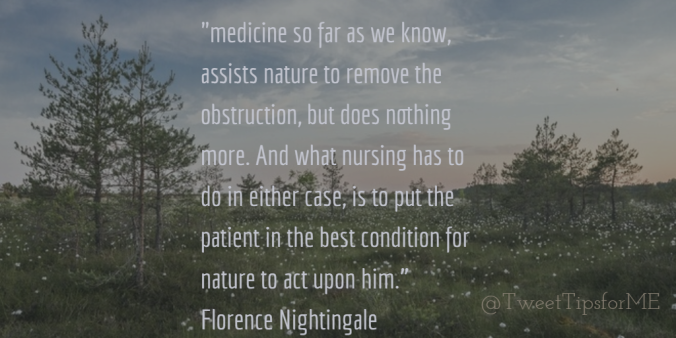
This desire to become an expert on my own body has also taught me the need for self-reliance in healthcare. This shouldn’t really be necessary, but it is for now. To get relevant treatment you need self-advocacy skills and the ability to find knowledge. What happens to people who are too unwell or lack the education or confidence for this? At times this has been me, and I have missed out on relevant healthcare for years as a result.
Patients are even taking back some responsibility for research by testing the things which don’t require official laboratories or prescriptions, but may help. For example, Mendus.org enables patients to test ideas, and personalised results do away with the need to think about probability and correct diagnosis at an individual level. People with MEcfs have been influential in the Quantified Self Movement and biohacking, born out of frustration with their ill health.
“Looking and feeling sick, tired, fat, or weak is not an option, and you were not meant to be that way.”
― Dave Asprey
Much focus has been placed on diet changes, partly because this is easy to hack without the need for a prescription. ME can’t be cured by diet, but most pwme start to learn that the types and quality of food consumed can be powerful for good or ill. From this, pwme and the wider Spoonie community (people with health conditions where you have to manage energy use) have hacked our diets behind the scenes. Recently these insights have become mainstream eating habits (paleo, clean eating, gluten free, courgetti). For us this is to manage symptoms but it also seems surprisingly fashionable!
A minority of people with ME who do manage a functional recovery, without much medical intervention, describe their technique as removing hindrances which prevent the body healing itself. This appears to be along the lines of what Florence Nightingale is describing here:
“It is often thought that medicine is the curative process. It is no such thing; medicine is the surgery of functions, as surgery proper is that of limbs and organs. Neither can do anything but remove obstructions; neither can cure; nature alone cures. Surgery removes the bullet out of the limb, which is an obstruction to cure, but nature heals the wound. So it is with medicine; the function of an organ becomes obstructed; medicine so far as we know, assists nature to remove the obstruction, but does nothing more. And what nursing has to do in either case, is to put the patient in the best condition for nature to act upon him.” Florence Nightingale
7) Very Little Knowledge is Truly Known
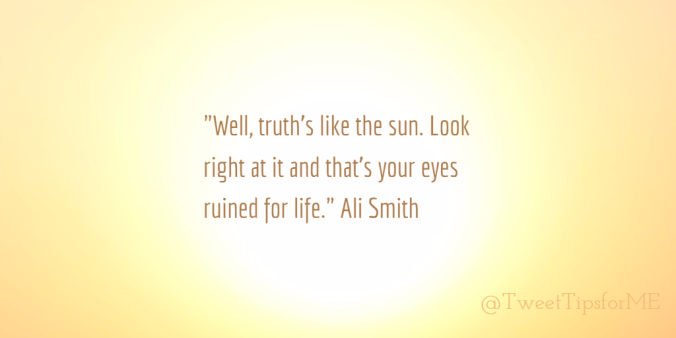
“When I say that consciousness is an illusion I do not mean that consciousness does not exist. I mean that consciousness is not what it appears to be. If it seems to be a continuous stream of rich and detailed experiences, happening one after the other to a conscious person, this is the illusion.”
― Susan Blackmore
One thing MEcfs does give you is time to think (if you can get your brain to work). CFS gave Susan Blackmore a chance to change tack in her career to the idea of memes and cultural evolution (for which she has become known for).
The specific nature of our experiences, and the time to think, causes many pwme to contemplate the world deeply. I’ve written before about Epistemological Crisis in ME:
“What does research have to say about ME? We want objective evidence, large sample size, double blinds. Then we will know.
Once again ME shows up the flaws in ways of knowing. It reveals the biases of Science. It is a marginalised condition, so it is pushed to the sidelines in terms of funding, irrespective of the severity or incidence of disease (see this post). An historical bias exists towards psychogenic causes, so more funding is allocated to studies on behavioural and psychological changes than biomedical ones. This leads to most results, and in turn treatment, relating to non-biomedical approaches. The nature of the research is socially constructed, not existing in an objective vacuum.”
“To understand God’s thoughts we must study statistics, for these are the measure of his purpose.” Florence Nightingale
I’m not sure if I completely agree with Florence Nightingale here. My encounters with statistics have been more sadistic than divine! Numbers, and choices about how you analyse them, do have power though. Patients with ME would like to know more about the raw data from the largest study of its kind, the PACE trial. In their current analysis the results from this trial have led the NHS and CDC to endorse treatments which lack face validity to patients, and can cause relapse. At the time of writing we are waiting to hear whether data will be released, despite an Information Commissioner decision that it should. If this is overturned at the appeal, it will set a dangerous precedent for future research with any participants on any topic: researchers will be able to claim that it is in the participants’ interest to protect data, whereas it is in fact in everyone’s interests for data to be as open as possible. This is an issue that matters to everyone.

“Maybe the difference was biological; some men may be wired for optimism, others for doubt.” Laura Hillenbrand
8) Learn your Limits and Take a Step Back

In modern societies we tend to live very driven lives. Children experience one test after another to get to university for more tests. There is a franticness to most people’s lives. Everything seems crucial. When this is taken away by illness at first it is a trauma. Then very little seems important. After a while good health, relationships and a sense of purpose seem to be all that is required for a fulfilling life but are out of grasp.
We learn a different way of managing activity, usually called Pacing. In this strategy energy is treated more carefully, how most people manage money. You have a budget each day. If you overspend you go into debt (relapse or setbacks). If you save a proportion of energy back then you have a buffer zone for sudden financial shocks such as viruses or family emergencies. ME isn’t the same as ‘burnout’ but overspending energy definitely doesn’t help (genetic predisposition and a viral trigger seem to usually be in the mix).
From the point of view of ME, it can be shocking to see how other people spend their energy. There is definitely something to be said for making deliberate choices in this area. I believe there is also something to be said for enduring boredom at times.
“I want to be bored. But I can’t. But I really don’t want to be this thing that I’m having to be instead of being bored.” Ali Smith
9) Money Enables Quality of Life
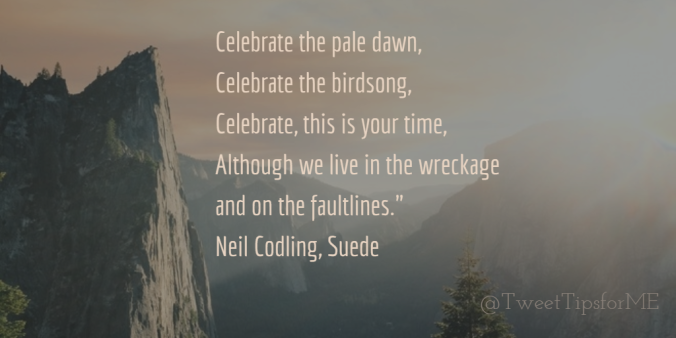
My life at the moment feels like Early Aged Retirement. I start to have traditionally old lady interests: I am interested in watching the birds, I like to knit and sew and I wonder if I will be well enough to go on a cruise! I’m 37 and haven’t worked for 4 years. Many pwme are experiencing this in their 20s.
The positive side of this is that I do appreciate simple things more.
“Live life when you have it. Life is a splendid gift-there is nothing small about it.” Florence Nightingale
The other side to this dynamic is poverty. Retirement is fun if you’re off SKIing (Spending the Kids Inheritance). It’s not so fun when you haven’t saved for a pension and don’t have any kids anyway. You might think all this talk of embracing boredom and stepping back means ME has made me less materialistic. On the contrary, it has taught me that health and happiness are unlikely without enough money to live on.
“The world does not get to be a better or a worse place; it just gets more senescent.”
Harold Bloom
A new report from the Joseph Rowntree Foundation shows that hundreds of thousands of disabled people are living at the level of destitution in the UK, 30% of all those in destitution are severely ill (which means they will sometimes be missing essentials like meals or heating or are homeless). How will these people get well? They will get worse if they are consistently cold. They are struggling to eat regularly, let alone any concerns about organic food and food restrictions or supplements or alternative therapies.
A certain level of financial security is necessary for wellbeing. ME has taught me to save hard financially as well as in terms of energy. Remember anything can happen at any time!
top
10) Appearance is Deceptive if You Don’t Look

There is a lot of talk about ME being an invisible disability. I don’t think it is invisible, it’s just not obvious. The impact of it is hidden from sight. Unless you live with someone who has ME, you only see them when they are well enough to be seen. Some people are never well enough to be seen, but if you could see them they look ill. Some pwme look like concentration camp survivors, others look transiently tired or puffy or frail. This awareness gives us as pwme insights into the struggles that other people face. Yvette Cooper (2015 Labour party leadership contest), says of what she learnt from ME:
“I hated every minute of it. But I would walk along the street and realise just how many other people were struggling just to walk. And I would see how easy it was for other people just to walk on by. I’ve always believed in being responsible, in working hard. But there are times when you simply can’t, when things go wrong in your life. And you can’t work even when you’re desperate to.
“To talk about people being benefit scroungers or workshy shows no respect. Now I see people who may be seriously ill having their support cut by Chancellor George Osborne to get the deficit down and that’s deeply unfair. The most vulnerable get hardest hit.” Yvette Cooper
Conclusion: how to make a difference
May 12th is Florence Nightingale’s birthday. This isn’t a coincidence. Florence Nightingale is thought to have suffered from ME, doing much of her nursing leadership work from bed (as I am writing now!). It is hard to imagine that her work wasn’t affected by her own experience of sickness. ME Awareness Day is May 12th in her honour.
A number of other notable pwme have been influential in wider society despite their personal health battles (see footnotes). We could do much more with adequate treatment. What pwme need now is for well people to take up our cause and help us fight for better healthcare and research, to swell the numbers demanding change. In the last few years ME research has advanced, but it could be much faster with adequate funding.
There are a number of different ways you can help out:
- Share our ME Awareness posts on social media. Relevant # include #MillionsMissing #May12BlogBomb #LightUptheNight #TeamPrincess #MEAwarenessDay and more generally #MEcfs #pwme and #MEAwareness
- Add an Awareness overlay to your social media avatars for the month of May
- Donate to ME charities such as ME Research UK
- Join ME Action and keep up to date with ME advocacy
- LightUptheNight yourself by buying blue lightbulbs for May 12th
- Join in the 25th May MillionsMissing protest either in Washington DC, virtually, or just your shoes
Biographical details on the people quoted above:
Florence Nightingale was born 196 years ago on 12th May. She is famous as the “Lady with the Lamp” who reinvented nursing after realising that soldiers were dying of malnutrition and dehydration as well as injury. She was a keen statistician who believed in patient data and invented the pie chart. Unfortunately her own health was bad. From 1857 she spent 10 years in bed with apparent ME. We celebrate ME Awareness Day on the 12th May in her honour.
Louisa May Alcott is the author of Little Women and other novels. Her diaries show she suffered long term health problems of a spoonie nature (ME or Lupus). Also, her sister Lizzie really did die years after not fully recovering from Scarlet Fever, like Beth in Good Wives.
Charles Darwin changed our understanding of inherited biology. His determination may in part have been spurred on by the various health problems in his family. These were possibly the result of a mitochondria genetic mutation, but appear ME like (mitochondria dysfunction is being researched in ME). He suffered particularly badly from vertigo, which is sometimes experienced by pwme.
Laura Hillenbrand is the author of Seabiscuit and other well known novels, sometimes writing in bed with a shaking hand. It is worth reading her account of getting ill with ME/CFS A Sudden Illness.
Ali Smith is a former academic and award winning novelist who became ill with CFS at 27 years.
Stuart Murdoch wrote many of the songs for the band Belle and Sebastian while ill with ME.
Susan Blackmore used to research parapsychology which she later rejected. During her time ill with CFS she became interested in cultural evolution. She is now well known for her work on the transmission of memes.
Jen Brea is a former journalist who had to drop out of her Harvard PhD due to ME. Through Severe ME she is directing the documentary Canary in a Coalmine. She has also founded MEpedia and the Thrive Show and co-founded #MEAction.
Toni Bernhard is a former law professor who now writes about her lived experience of ME and Buddhism (for example How to be Sick).
Pema Chödrön, a Buddhist nun, is known for her teaching on compassion and best-selling books “When Things Fall Apart” and “The Places That Scare You”. She has had CFS since 1994.
Harold Bloom founded a PR firm in the music industry, working with top pop stars. He came down with ME in 1988. Housebound, he reinvented himself as a scientist and writer.
Dave Asprey was named #19 out of the 100 most influential people in health & fitness in 2015. The famous Bulletproof Diet is based around what helped his CFS.
Neil Codling of Suede had to leave the band in 2001 due to ME/CFS.
Yvette Cooper, last year’s Labour leadership contender, suffered from ME for 3 years but has since recovered.
top
Further Reading
Each of these topics could probably be turned into a book. If you’re interested you may like these posts too:
From this blog:
Unknowing-Knowing: Epistemological Crisis in ME
Resource: Stoical ME, practical wisdom for adversity
Other ME Awareness Posts:
#May12BlogBomb this blog updates a list of all the blog bomb awareness posts
#May12BlogBomb 2015
From around the web:
Stoicism and Chronic Uncertainty (my post for Stoicism Today)
Scientific Evidence of Biological Dysfunction in ME
PACE: The research that sparked a patient rebellion and challenged medicine
Sickness and the Social Model of Disability
Mapping Disability – Sickness and the social model II
5 Reasons My Google Search Is Worth As Much As Your Medical Degree


Pingback: Differentiating Post-Covid PVFS, existing ME and POTS | Tips for ME